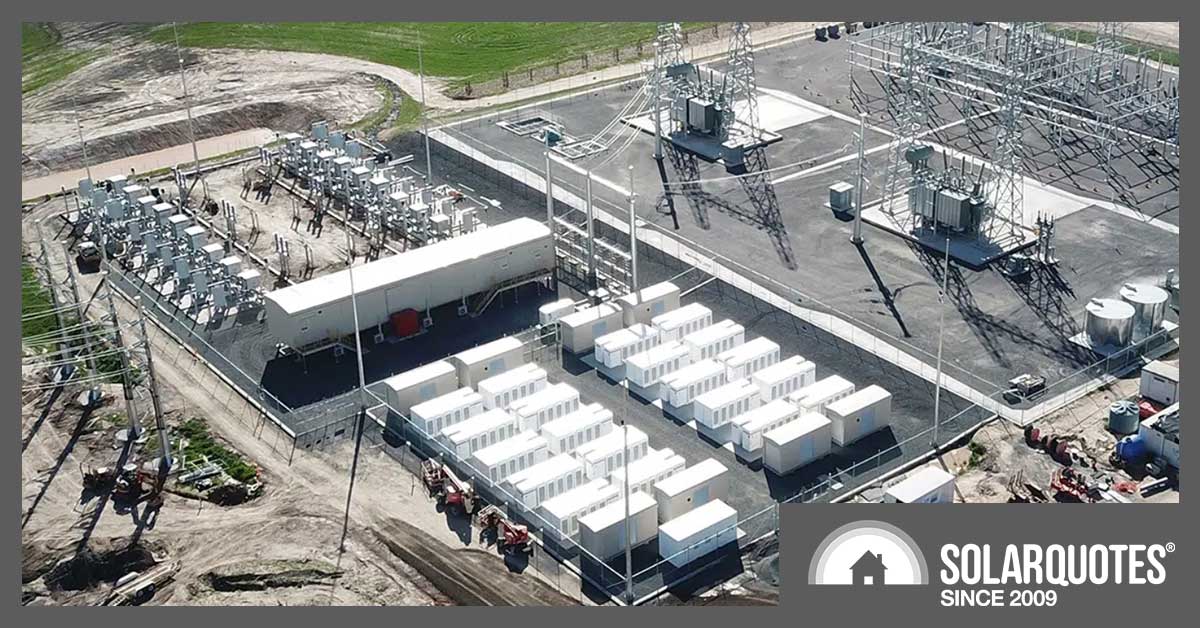
Two grid-scale battery projects came closer to operation over the weekend in Western Australia and the Northern Territory.
In Western Australia, the Kwinana 200MWh battery has commenced a series of charge and discharge tests, the final phase before it enters the network later this year.
The government’s announcement said the 200MWh battery can supply 160,000 homes for two hours.
In a $3 billion renewable energy package in its state budget last week, WA announced commitments of $2.3 billion to battery projects.
They will include a larger 800MWh battery in Kwinana, and another in Collie
“providing around 500 MW for up to four hours”.
If the government press release has got their electrical numbers correct (a big if), that’s 2GWh: one of the world’s largest battery systems. But interestingly, only half the 4GWh announced last year.
The second battery at Kwinana is due to be operational late next year.
Renewables support in the budget also includes $368 million for wind generation projects at King Rocks and Eneabba, and $126 million for electricity network planning and upgrades.
“With the Kwinana big battery entering operational testing today, we’re moving onto an even bigger battery on site – with four times the capacity”, premier Mark McGowan said.
NT battery commissioning
Meanwhile, a much smaller battery in the Northern Territory, the $45 million Darwin-Katherine Battery Energy Storage System, is ready for pre-commissioning following the installation of the last of its 192 batteries.
The NT government said said the battery will replace some of the gas-fired generation at its Channel Island power station, and will also help firm the grid to support increased solar power.
The government expects the battery to generate savings of around $9.8 million a year, giving it a five-year payoff.
In its announcement, the government said
“A temporary power supply has been established for pre-commissioning testing on the eight DK BESS Hitachi Energy modules, each comprising a bank of batteries, a set of inverters and a step-up transformer.”
That setup will be used for charge and discharge tests before the battery is connected to the 11kV switch room.
Network-connected commissioning starts later this year, with the battery fully operational during the first half of 2024.

 RSS - Posts
RSS - Posts



Speak Your Mind